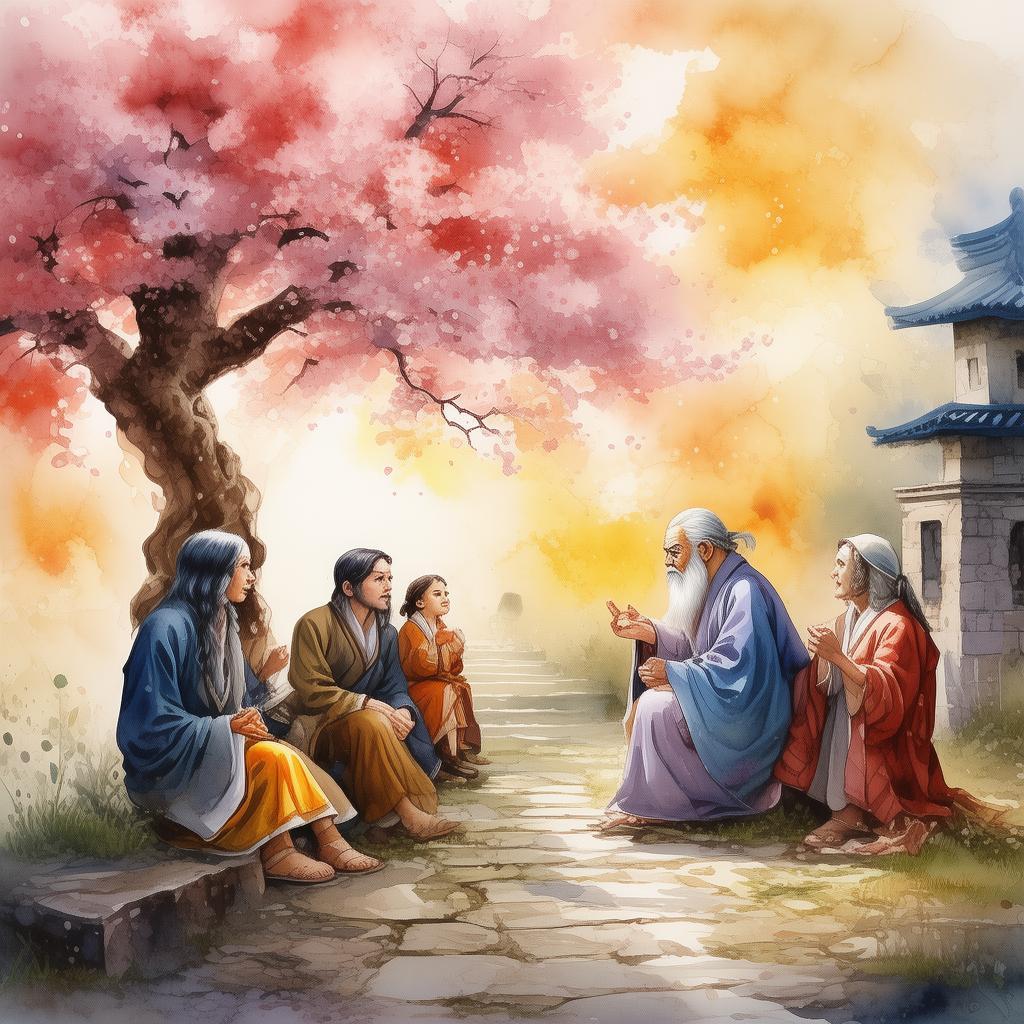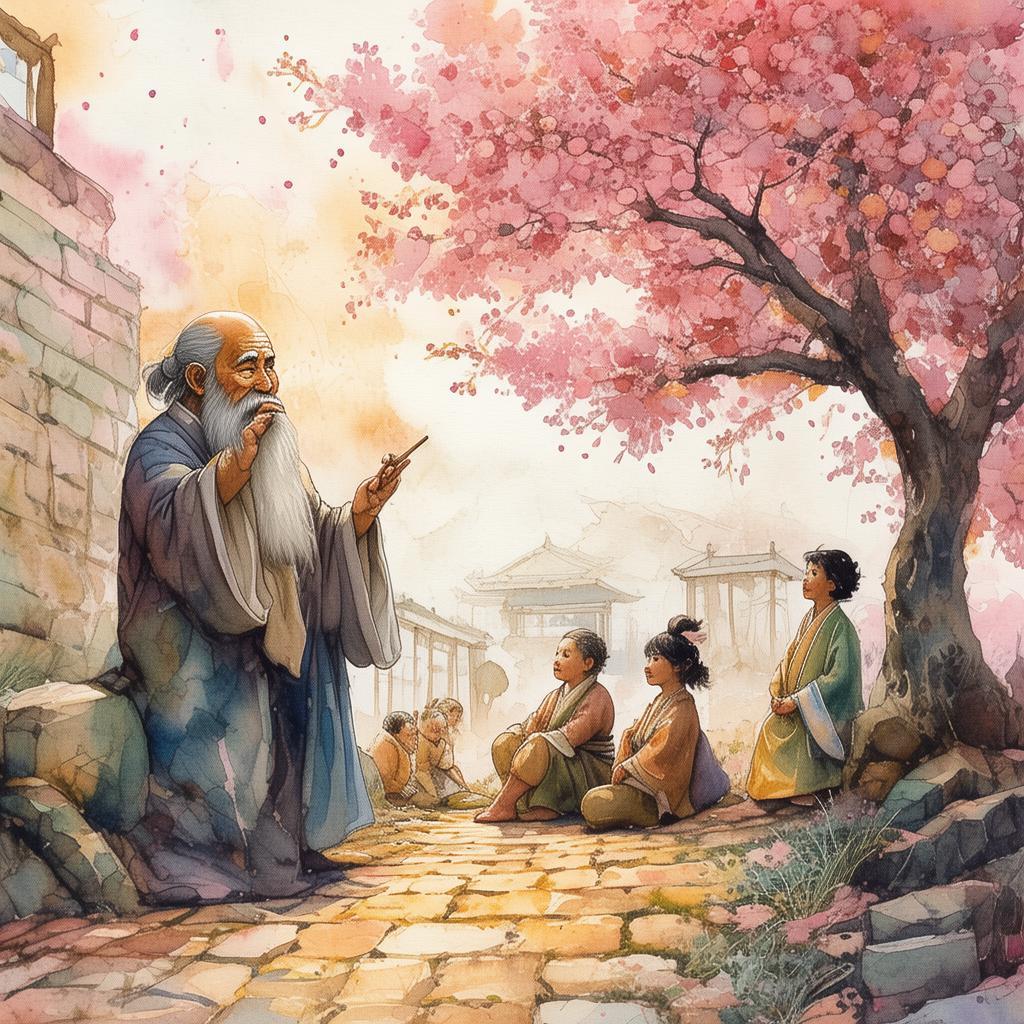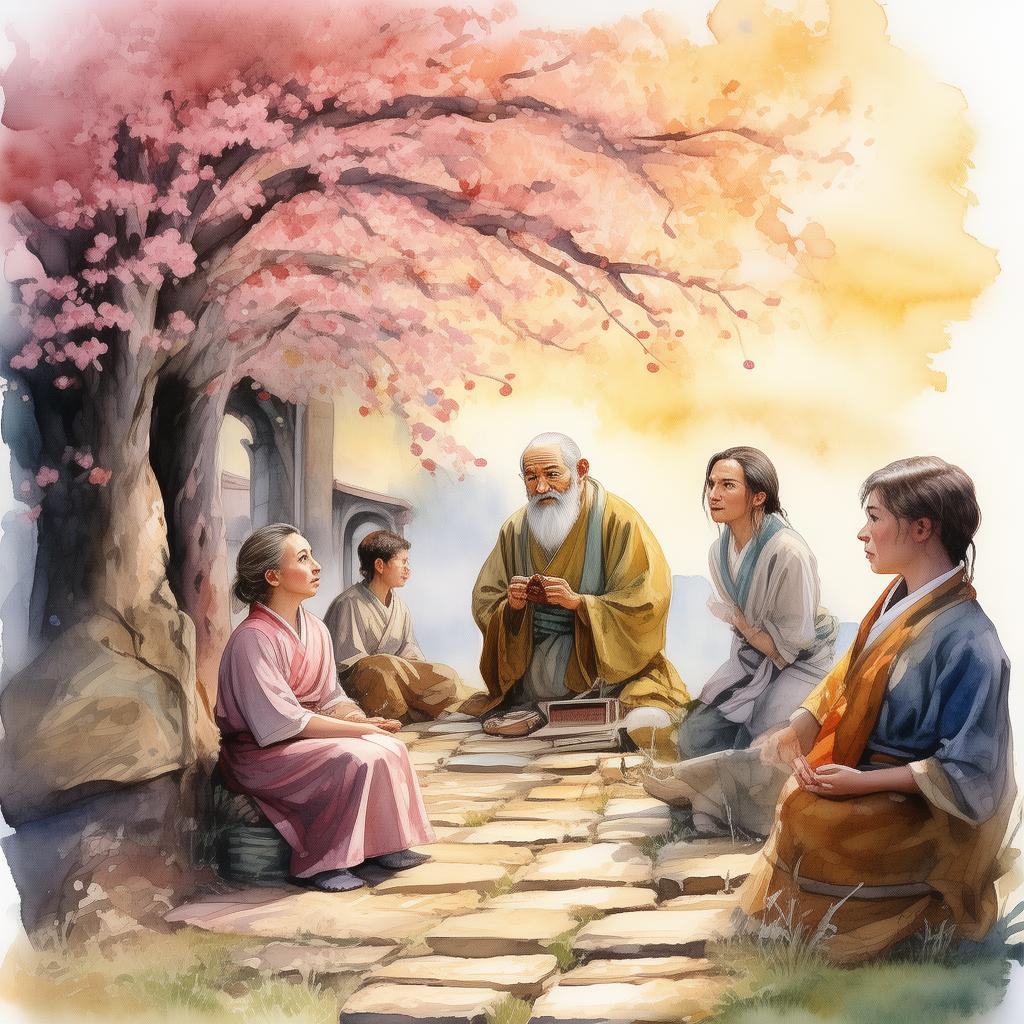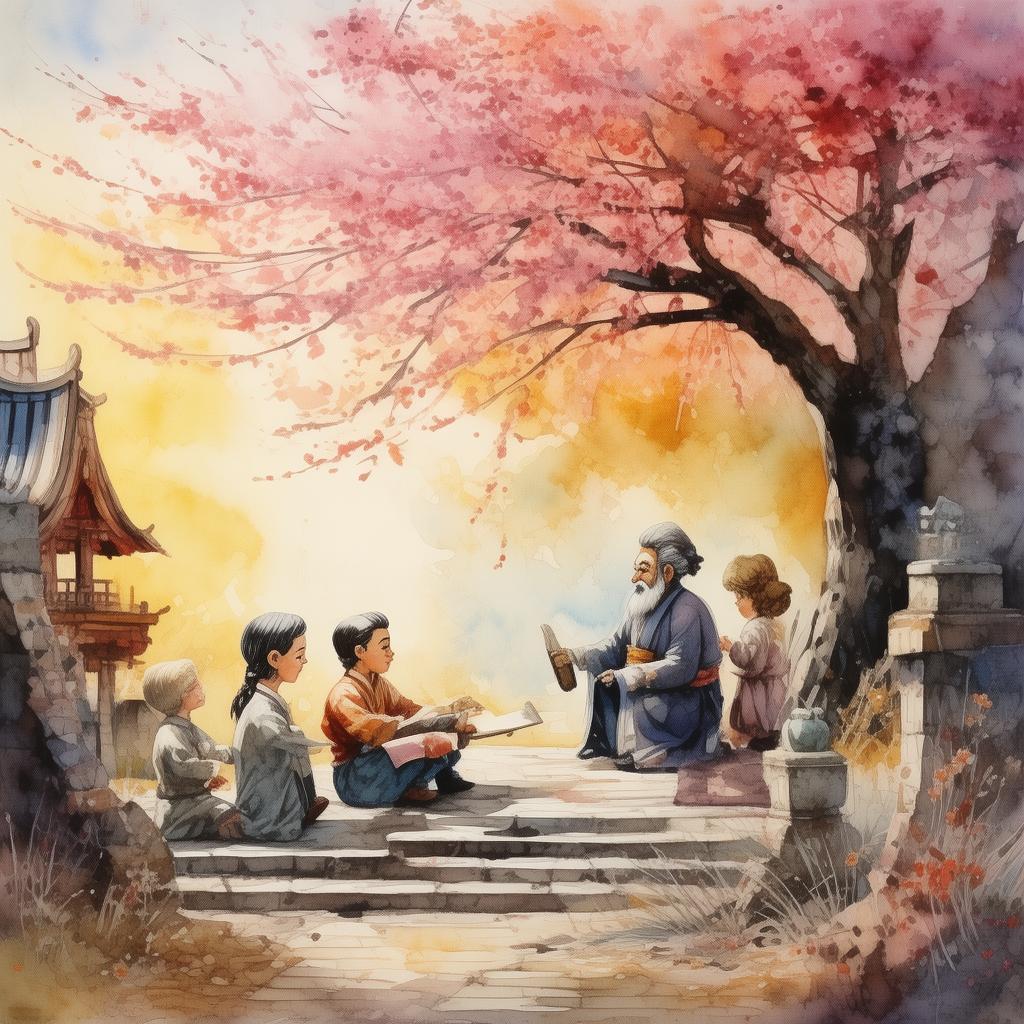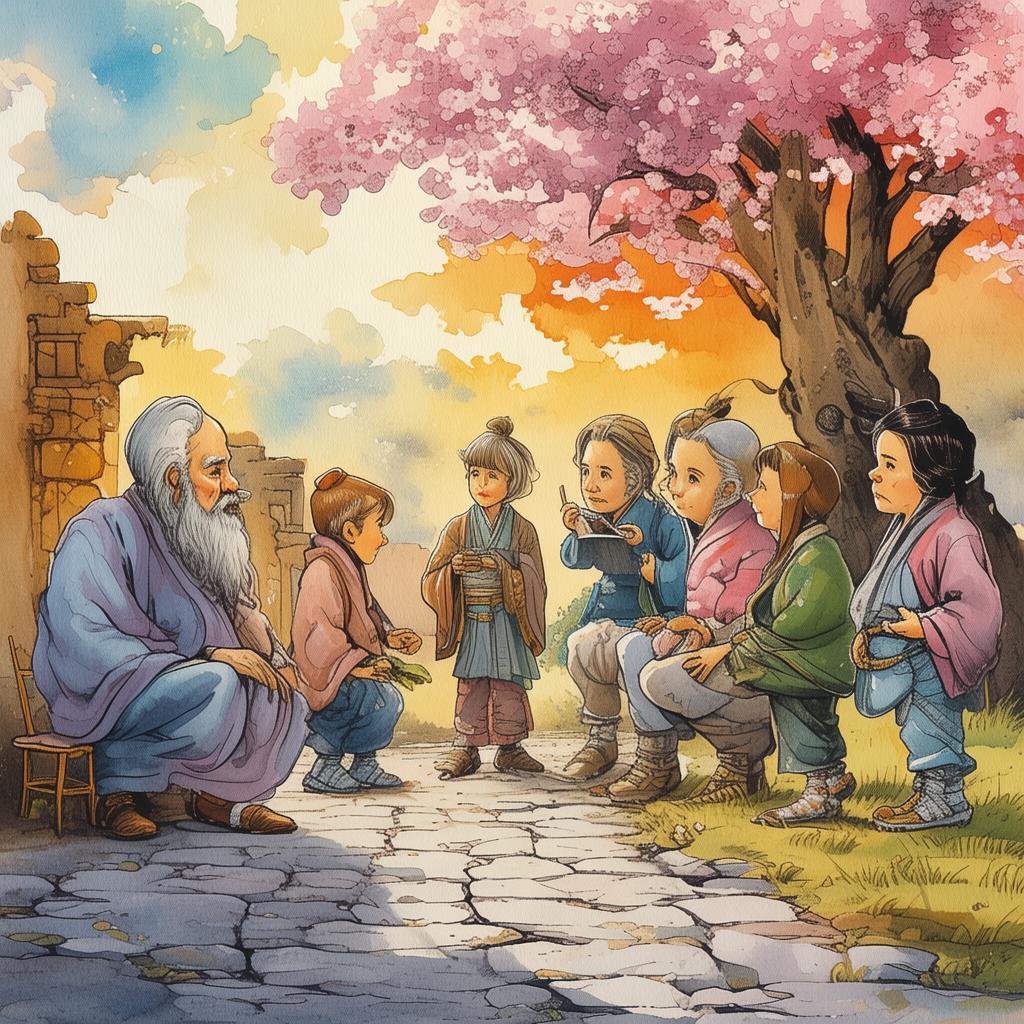The Bard's Last Word: The Quest for Legacy
In a quaint village nestled between rolling hills and dense forests, there stood a quaint, old inn where the fabled Bard of Eldoria would regale the villagers with his tales of bravery and love, of darkness and light. The Bard's voice, rich and deep, had once stirred the hearts of countless listeners, but the world had changed. With the advent of written word and the printing press, the tales of the Bard had lost their allure. The villagers, more interested in the written word, no longer gathered around the Bard's tales.
As the Bard approached the twilight of his years, he realized that his legacy was in peril. He had been told by his mentors that a true story must have more than just entertainment—it must have purpose, depth, and the power to change. With a heavy heart, the Bard embarked on a quest to prove his worth once more.

He journeyed far from his village, through towns and villages where the art of storytelling was still revered. Yet, no matter how he tried, the magic was gone. The stories he had once spun from his imagination no longer captivated his audience. Despondent, the Bard returned to his village, only to find that the inn he had once called home was on the verge of collapse.
As he walked through the dilapidated inn, the Bard stumbled upon a hidden chamber behind a wall that had long since crumbled. Inside, he found a collection of ancient scrolls, each filled with forgotten tales and the essence of what made storytelling great. The Bard knew that these stories held the key to recapturing his worth.
With renewed hope, the Bard began to weave these ancient tales into his own. He worked tirelessly, day and night, crafting a narrative that was both new and familiar, one that would resonate with the hearts of the villagers and prove his worth as a storyteller once more.
As the day of the annual festival approached, the Bard stood on the stage, the audience gathered in anticipation. The Bard took a deep breath and began his tale, his voice filled with the power of years of practice and the depth of ancient wisdom.
The tale was of a young girl who discovered her village was under threat from a malevolent force. The girl, with no magical powers or martial prowess, embarked on a quest to save her people. Along the way, she learned the true meaning of courage, love, and sacrifice. The Bard's tale was one of transformation, one where the protagonist grew, learned, and changed.
As the final words of the story left the Bard's lips, a hush fell over the crowd. Then, a thunderous applause erupted. The villagers had been moved, their hearts touched by the Bard's final tale. They realized that the art of storytelling was not dead; it simply needed to be remembered and revered.
In that moment, the Bard's quest for worth was complete. He had proven that the power of storytelling was not just in the tale, but in the listener's heart. His legacy was secure, not because of his stories, but because of the impact they had on the villagers.
As the Bard retired from his quest, he knew that his story would be told for generations to come, not just as a tale of an aging storyteller, but as a testament to the enduring power of words and the heart.
In the end, the Bard's Last Word was not just a tale, it was a lesson, a reminder that the power of storytelling is not just in the words, but in the emotions they evoke and the change they inspire.
✨ Original Statement ✨
All articles published on this website (including but not limited to text, images, videos, and other content) are original or authorized for reposting and are protected by relevant laws. Without the explicit written permission of this website, no individual or organization may copy, modify, repost, or use the content for commercial purposes.
If you need to quote or cooperate, please contact this site for authorization. We reserve the right to pursue legal responsibility for any unauthorized use.
Hereby declared.




